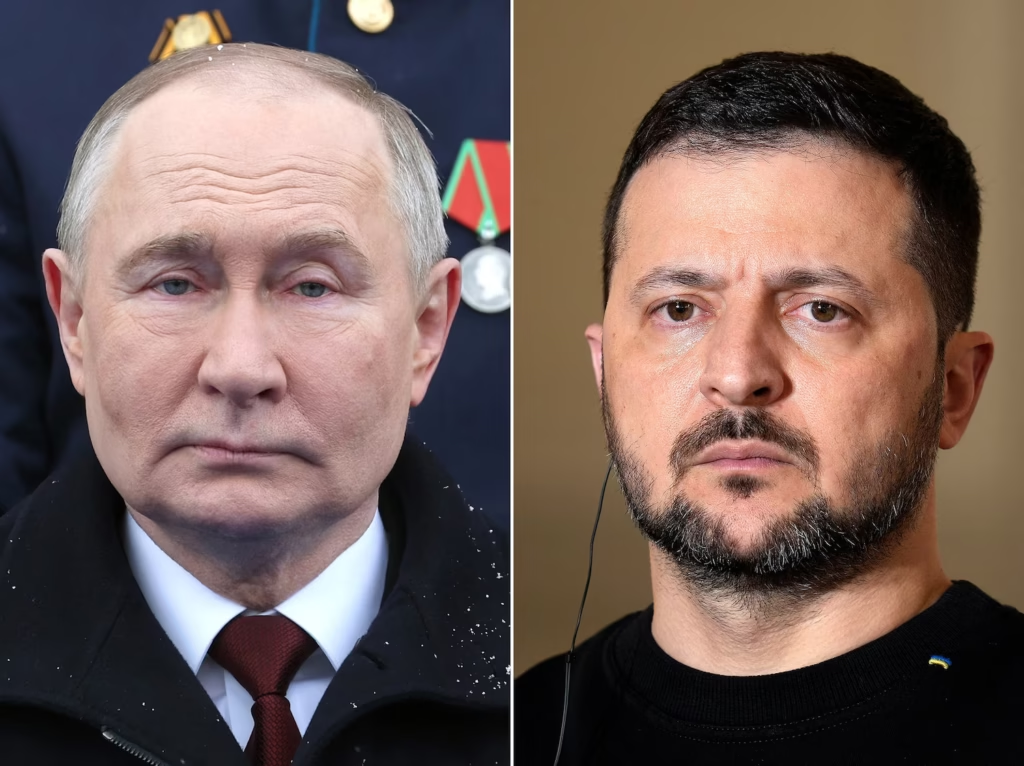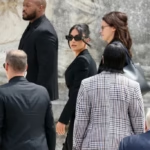As the Russian-Ukrainian war continues to devastate the region, President Vladimir Putin finds himself facing a critical moment that could reshape the future of the conflict. Direct peace talks between Ukrainian and Russian representatives are scheduled for Thursday in Istanbul, Turkey, and the stakes are higher than ever. The meeting, if it goes ahead, would be the first direct negotiation between the two sides since the early days of Moscow’s full-scale invasion in February 2022, signaling a potential shift in the trajectory of the war.
For months, Putin has been steadfast in his refusal to engage in a full 30-day ceasefire, a demand repeatedly made by Ukraine and the United States. Instead, the Russian leader offered direct talks in Istanbul, a proposal that has garnered some surprising support, including from former U.S. President Donald Trump. The endorsement of peace talks by Trump adds another layer of complexity to the already tense situation, as it appears to offer a diplomatic route to de-escalation, one that could alter the balance of power in international relations surrounding the war.
Ukraine’s President, Volodymyr Zelenskyy, however, has raised the stakes, issuing a bold challenge to Putin. In a post on social media, Zelenskyy stated, “I will be waiting for Putin in \[Turkey] on Thursday. Personally.” He expressed hope that, unlike previous occasions, Russia would not find an excuse to back out of talks. This direct challenge is seen as a strategic maneuver by Zelenskyy to force Putin into a corner, making it almost impossible for him to refuse the meeting without significant political fallout.
The prospect of a face-to-face meeting between Putin and Zelenskyy has been met with mixed reactions. Putin has not met with Zelenskyy since 2019, and over the course of the war, he has consistently sought to delegitimize the Ukrainian president. The Russian government has argued that negotiating directly with Kyiv would be inappropriate, further complicating the situation. However, by offering direct talks, Putin is trying to present himself as willing to negotiate, a move that could be seen as a diplomatic victory if the talks succeed. Yet, at the same time, the offer has sparked skepticism, especially given Russia’s repeated refusal to abide by ceasefire agreements in the past.
Oleksandr Merezhko, a member of the Ukrainian parliament representing Zelenskyy’s party, highlighted the dilemma that Putin faces. According to Merezhko, Putin is in a position where no matter what he does, he risks losing. “If Putin doesn’t show up in Istanbul, he loses,” Merezhko told ABC News. The Ukrainian lawmaker suggested that if Putin fails to attend, the world will see that Russia is unwilling to negotiate, which could further isolate the Kremlin on the international stage. Merezhko warned that such a scenario would leave Putin vulnerable to being portrayed as a “war criminal” and an “old dictator,” a narrative that would be damaging to his leadership.
The Kremlin, however, has been tight-lipped about whether Putin will attend the talks in Istanbul. Dmitry Peskov, a Kremlin spokesperson, reaffirmed Russia’s commitment to seeking a “long-term peaceful resolution” but did not provide clarity on whether Putin would meet Zelenskyy in person. This silence has added to the uncertainty surrounding the negotiations, leaving the international community to speculate on what Russia’s next move will be.
Some Russian officials, including Konstantin Kosachev, deputy speaker of the Federation Council, have suggested that Putin will not attend the Istanbul talks. Kosachev, speaking to Rossiya-24 TV, accused Zelenskyy of attempting to shift blame onto Russia by creating a narrative where Putin’s absence would be seen as a refusal to negotiate. According to Kosachev, Zelenskyy’s actions are part of a strategy to portray Putin as intransigent, while simultaneously pushing the international community to pressure Russia into concessions.
While many European leaders have expressed support for a ceasefire, Putin’s offer of talks was presented as an alternative that would allow for negotiations without the pause in hostilities that Ukraine and the West have requested. European leaders, including British Prime Minister Keir Starmer, French President Emmanuel Macron, and Ukrainian President Zelenskyy, visited Kyiv recently, urging Russia to agree to a 30-day ceasefire. Putin has so far resisted this call, and it appears that the Russian leadership is more interested in maintaining military pressure on Ukraine while exploring diplomatic avenues through direct talks.
Donald Trump, the former U.S. president, has emerged as a surprising voice of support for both the 30-day ceasefire and Putin’s offer of direct talks. Trump, who has consistently been critical of the Biden administration’s handling of the Ukraine crisis, publicly supported the idea of negotiations in Istanbul. In his comments, Trump seemed to suggest that Zelenskyy should agree to the meeting without delay, positioning himself as a potential mediator in the ongoing conflict. Trump even floated the idea of traveling to Istanbul himself, emphasizing that “Thursday in Turkey” could prove to be a pivotal moment for peace.
This shifting rhetoric by Trump, however, has raised concerns in Ukraine. While Zelenskyy has largely refrained from engaging with Trump’s proposals, some Ukrainian officials worry that the former president’s inconsistent stance on the war might be influenced by Russia’s disinformation campaigns. The unpredictability of Trump’s position, alongside his reluctance to impose severe sanctions on Russia, has led some in Ukraine to question his motives. “It looks as if despite Ukraine agreeing to all Trump’s proposals — even though it’s not in our interests — he is reluctant to impose serious sanctions on Russia,” Merezhko said, reflecting the unease within the Ukrainian government over Trump’s public support for Putin’s offer.
As the Istanbul talks approach, there is a palpable sense of anticipation, but also caution. Oleg Ignatov, a senior analyst at the International Crisis Group, noted that while the idea of direct talks between Putin and Zelenskyy is promising, it is unlikely to lead to an immediate breakthrough. The Russian government has made it clear that it intends to keep up military and diplomatic pressure on Ukraine, while Ukraine remains committed to holding Russia accountable for its invasion. Ignatov believes that both sides are playing a game of diplomatic chess, with each side trying to force the other to make concessions while preparing for prolonged negotiations.
Despite the uncertainty, Zelenskyy’s diplomatic maneuvering has been praised by Ukrainian lawmakers and international observers. By publicly challenging Putin to meet face to face, Zelenskyy has put pressure on the Russian leader to either engage in meaningful dialogue or risk further alienating Russia from the global community. “Zelenskyy made a genius chess move which has cornered Putin,” Merezhko said. By agreeing to meet in Istanbul, Zelenskyy has forced Putin into a situation where any decision will come with significant political consequences.
However, as the world watches closely, it remains to be seen whether Putin will accept the challenge. With both sides entrenched in their positions, the outcome of the Istanbul talks may not immediately lead to peace, but they could set the stage for future negotiations. For now, the international community can only wait to see whether Putin will show up to the table, and if so, what the implications of the meeting will be for the future of the Russia-Ukraine conflict.



